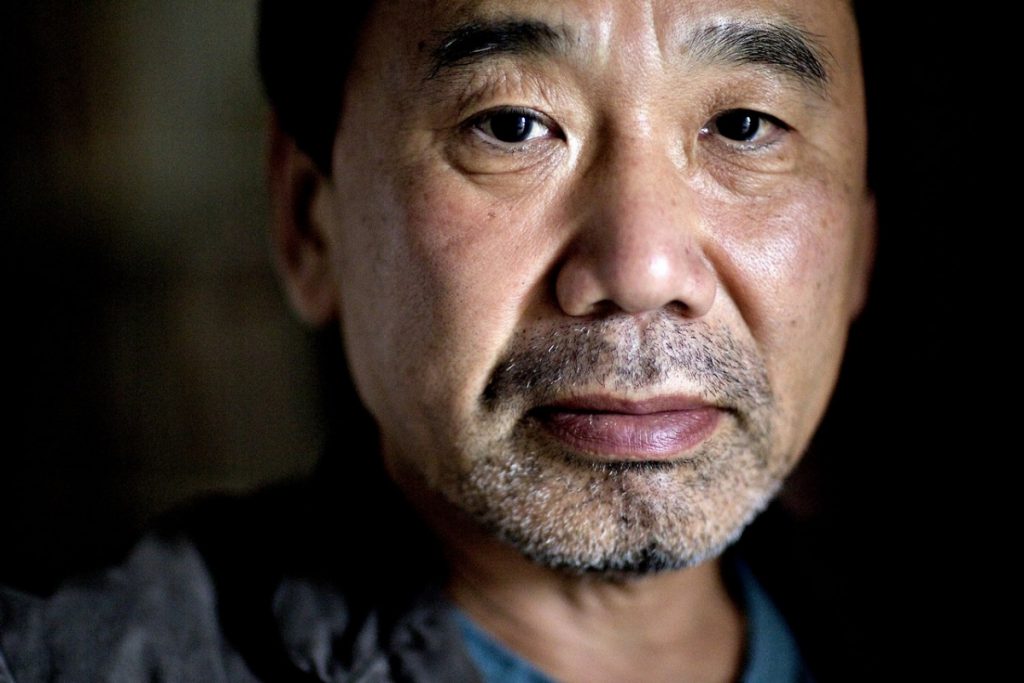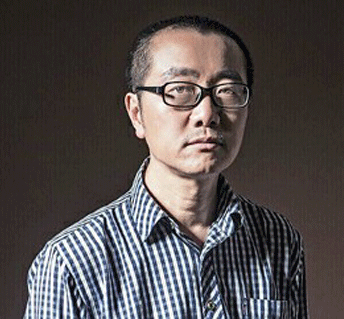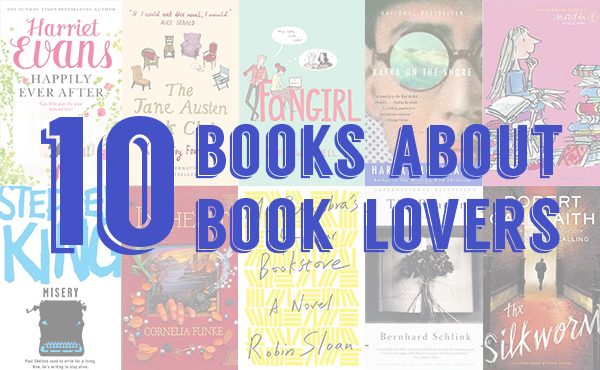I am an admitted addict of Haruki Murakami's work—if he's written it, I've read it, and possibly written a paper on it. The English translation of his latest novel, Colorless Tsukuru Tazaki and His Years of Pilgrimage, comes out this week. If you’re a crazed fan like me, someone who has enjoyed the odd work in the past, or you clicked on this link through pure happenstance: well, here's a list of what to read when you're finished.
If you like reading, and especially reading Murakami, then you’re in the right place. Murakami’s hard-to-pin-down style is often considered magical realism, and most of his fans are told repeatedly to read the (thoroughly brilliant) works of Marquez. But here are fifteen books you might not know about that you ought to check out while waiting for your next fix.
If you want to read other surreal Japanese authors who have become popular in the west…
Coin Locker Babies, by Ryu Murakami: Similar name: different author. Two infants were left in coin lockers by their mothers, and are brought up by the same orphanage. While looking for one of their mothers, one becomes a rock star, the other a pole vaulter. There are crocodiles, drugs, and a desire to destroy Tokyo. Need I say more? Like Haruki Murakami, Ryu Murakami mixes genres, cultures, and aesthetics, fantasy and reality.
The Woman in the Dunes, by Kobo Abe: Just as Murakami did in his novel Kafka on the Shore, Abe references (though more obliquely) Greek mythology: specifically, the tale of Sisyphus. A teacher and entomologist stranded by a desert town becomes trapped in with a woman who lives in a sand pit, digging the sand away from the village, day in and day out. Forced to assist her, the teacher becomes her lover and struggles with both adapting to his new life and attempting to escape it.
If you enjoy the mix of reality and fantasy, or the atmosphere in Murakami’s books that suggests reality was ineffably shifted two degrees to the left…
American Gods, by Neil Gaiman: Imagine if all of the gods that all of the stories from all of the worlds cultures were real. And also you were recently released from prison and became a widower. And were then hired by someone who calls himself only "Mr. Wednesday" who seems to have more power than anyone has any right to, and is worryingly enigmatic. Add in murder mysteries, power struggles, and the flyover states and you might come up with the strangely compelling American Gods.
The House of the Spirits, by Isabel Allende: In a text with definitive elements of Latin American magic realism, Allende weaves a story about four generations of the same family as their country changes around them. In the midst of upheaval and turmoil, the multitudinous members of the Trueba family fall in and out of love, deceive and are deceived, have green hair and psychic powers and silence and spirits. Difficult to capture in its entirety, it is an interwoven vision of opposites and extremes, and ultimately speaks to the complex and varied relationships possible in a family.

Snow Crash, by Neal Stephenson: Hackers can enter the virtual world like sleepers in the Sandman's lair; the main characters are Hiro Protagonist, a pizza delivery guy, Y.T. (Yours Truly), a teenage courier, and the ominous Raven, a biker with a sword gone nuclear; and there is a hot new drug that turns out to be a bio-linguistic-computer virus. Along the way are discussions of Sumerian mythology, a U.S.A. disbanded and overtaken by corporations, and, a modern religious cult that lives on a boat. It's kind of really awesome.
Trout Fishing in America, by Richard Brautigan: The thing about Trout Fishing in America is that the language is unbelievably clean yet beautiful. It has the lyrical flow that Murakami's translators have been able to capture in the English version of his works. It's strange, dense, abstract—but it does live up to the title. Trout fishing is repeatedly mentioned, both to recapture that same sense of nostalgia Okkervil River sought in their latest album and to critique modern American society, mixed with sadness, hope, and surrealism in a compelling blend.
If your favorite Murakami work is in a collection of short stories…
"Character Development," by David Mitchell: If you found the detours into the Manchurian War in Murakami’s The Wind-Up Bird Chronicle strangely compelling (if unnerving), this short story about a British private made to follow certain orders that he knows are wrong will capture you. Not a portrait of a grand hero, but an honest if brief examination of a soldier's dilemma. The story appears in the collection, pictured above, and free via the link!
"Alone Alarm," by Jonathan Carroll: A cuckolded husband, martial arts references, and a startling realization of mediocrity: it's a story about epiphanies and what happens when you literally meet yourself.
"Auggie Wren's Christmas," by Paul Auster: Our modest and somewhat introverted narrator is a writer, who has to write an unsentimental Christmas story. Auggie Wren is a shop owner who takes photographs of the same street corner every day at the same time, and the one who provides a story. It's a sweet and deceptively simple story.
If you want some intriguing nonfiction related to the themes in Murakami’s work, look into…
The Fantastic: A Structural Approach to a Literary Genre, by Tzvetan Todorov: Todorov clearly defined and separated the fantastic, the uncanny, and the marvelous, separating the general "supernatural" events into those that are illusions and those that break the laws of reality. If you're looking for a more in-depth understanding of the hesitation between accepting the apparent and actual realities, this an excellent read. On the other hand, if you want to learn about the origins of magical realism, then look into Alejo Carpentier's work (an extra recommendation, totally and completely free!).
The Collective Works of C.G. Jung, by Carl Jung: Originator of an entire school of psychology, Jung was one of the pioneers in research on the unconscious. He studied the connection between and possible integration of conscious and unconscious within an individual, seeking to understand how opposites can come together. Best known for his theories of the collective unconscious and archetypes (leading to the Myers-Briggs test), Jung's psychological theories resonate in the speculations present in many of Murakami's works.
Postmodernism or, The Cultural Logic of Late Capitalism, by Fredric Jameson: Jameson's critique of postmodernism and cultural pastiche are certainly relevant to the often-anonymous heroes of Murakami's work, surrounded as they are by brands and names and titles. Moreover, Jameson's comments on the postmodern American relationship to history can cast new light on Murakami's own struggle to come to terms with Japanese history. While certainly verbose, if you can wade through the language the ideas are fascinating.
And lastly, if you want to get inside this literary giant's head, you could check out some of his favorite authors and influences…
What We Talk About When We Talk About Love, by Raymond Carver: There's a reason this volume is so famous; a reason Murakami himself aped the title (What I Talk About When I Talk About Running). Murakami has translated Carver's work before, and it shows: this collection of short stories has no frills, no excess words, merely simple, concise sentences (think Hemingway) and portraits of ordinary people who, more often than not, are lost.
The Metamorphosis, by Franz Kafka: Another work that gets a claim to history with an opening that sees Gregor Samsa translated into a monstrous vermin, a horrible, large bug—though translators disagree on the most appropriate phrasing. The easy acceptance of such circumstances, so that the focus of the story is not on the magical transformation but rather on how one might live as a giant cockroach, recalls the hallmarks of magical realism pervading much of Murakami's work.
The Nuclear Age, by Tim O'Brien: In short: a man attempts to come to terms with the world in which we live. In long, well… there is the possibly insane narrator who wants to dig a fallout shelter in his backyard; the Vietnam War and draft dodging; complex family politics; overwhelming fear; a foul-mouthed daughter: and a narrator questioning the perception of reality itself.
Unless someone out there has a brain like Leeloo, that ought to tide all of us for a few more weeks. Got any other suggestions? Leave them below!
Happy reading!











